2 Dec 2024
Beyond Traditional Transactions: How to Develop an App Like BitPay
Matthew Connor
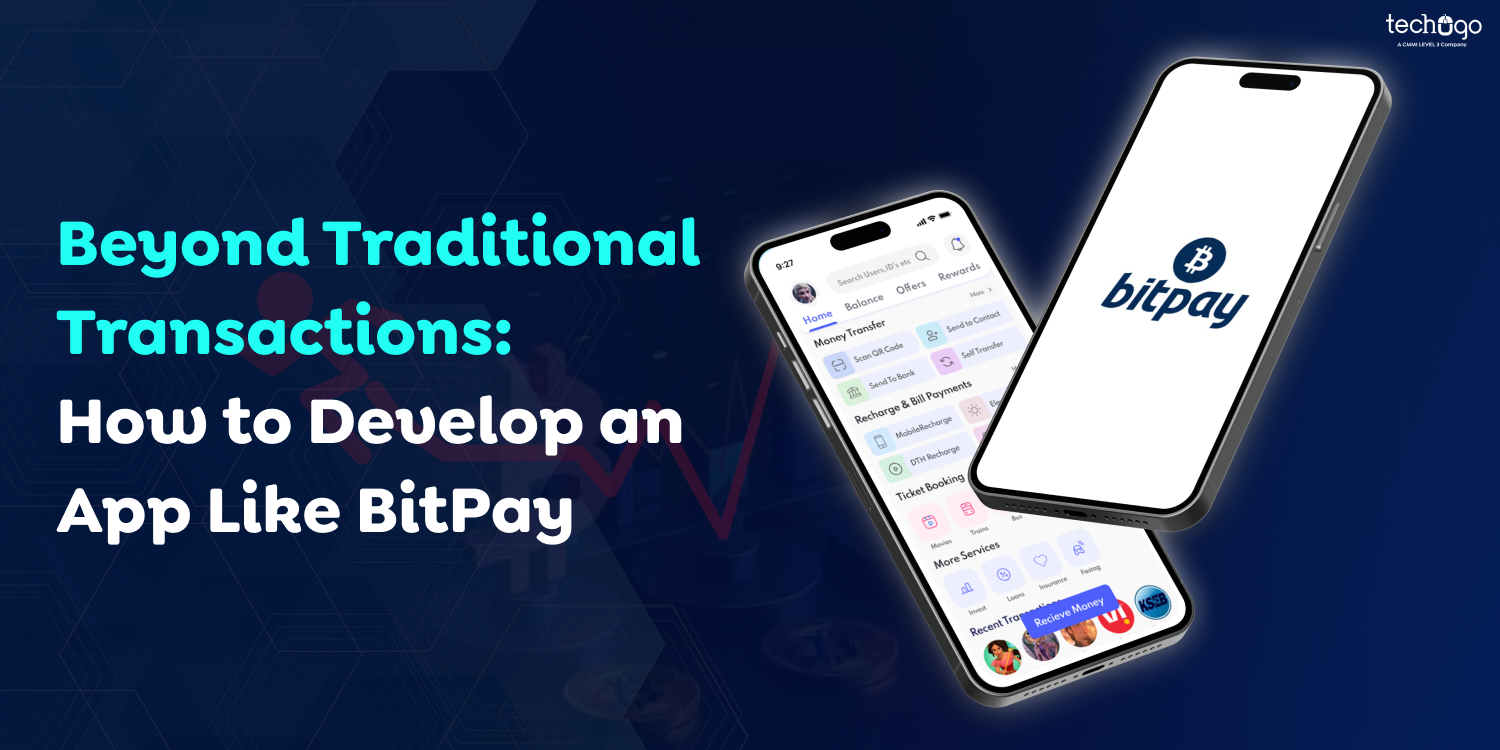
Since the demand for cryptocurrencies such as Bitcoin and Ethereum continues to grow daily, organizations are attempting to incorporate the crypto payment gateways in their websites. Crypto payment gateways allow firms to accept payments through digital currency. This provides more security and convenience to both the buyer and seller.
The influence of crypto payment gateway apps like BitPay is expanding in the world of electronic payment systems, leading to an extensive shift in the direction of cryptocurrency over traditional currencies and contributing to the fast growth of crypto payment gateways such as BitPay.
By introducing the cryptocurrency domain, it can turn into an endless maze of technicalities. The cryptocurrency-based payment method serves as a bridge for enterprises to accept digital currencies as a means of payment for products and services. When flexibility and readiness for digital make up the basis of its success in business, the most reliable crypto payment options can be the key element to create an additional stream of revenue and increase the satisfaction of customers.
Do you want to develop a crypto-based payment gateway? One of the first questions that might arise is how much it will cost.
The blog will discuss the many factors contributing to the cost of developing a crypto payment gateway like BitPay.
Understanding Crypto Payment Gateway
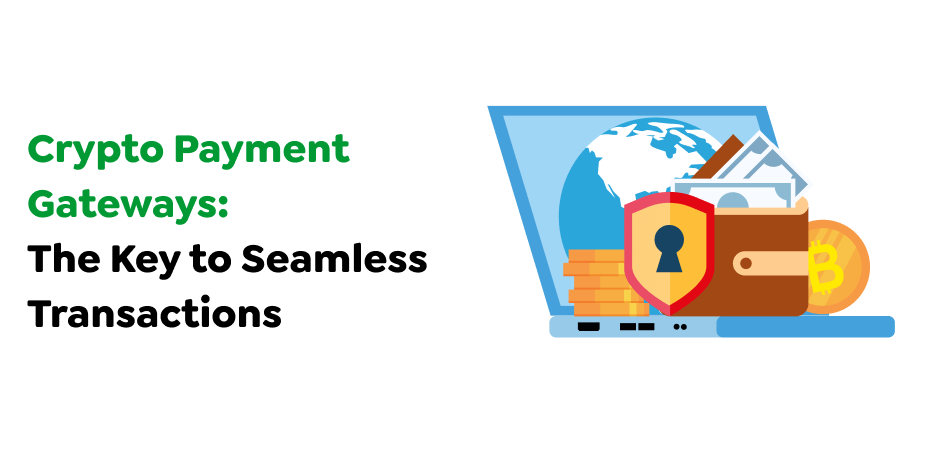
It is an interface that uses technology connected to the internet; the crypto payment gateway functions as a bridge between merchants and customers. It allows for a simple and safe transaction. This will enable companies to receive payment through digital currency. Utilizing a rapid payment process through a gateway transforms the cryptocurrency’s funds into conventional currency at any time that is required.
Additionally, it improves security and protects confidential information using encryption technology and blockchain technology. With a cryptocurrency payment platform, businesses can explore many new opportunities for digital currency. Customers can be provided with various payment options, and their goods and services can be made more accessible around the globe.
Also Read : How Much Does It Cost to Develop a Fitness App Like Strava?
How Does It Work?
The crypto payment gateway is an intermediary for payments between two parties, ensuring safe and efficient transactions. It serves as a facilitator between traditional financial systems and decentralized blockchain. As customers initiate paying through a payment gateway, it encrypts all transaction information and makes it available on the blockchain.
The gateway performs an authenticity verification of the transaction to ensure that customers have enough funds in their accounts. After the payment gateway verifies the transaction, the merchant will receive an email via the gateway. The merchant can receive cryptocurrency or convert it into traditional or local currency using an integrated exchange.
In addition to the transactions, a cryptocurrency payment gateway can significantly reduce the possibility of fraud and ensure that regulatory compliance is maintained. It can support a variety of cryptocurrencies and meet the expectations of a large population of users while expanding the worldwide acceptance of digital payments.
Also Read : The Ultimate Guide to Developing an App Like Duolingo
Benefits Of Building a Crypto Payment Gateway Like BitPay For Businesses
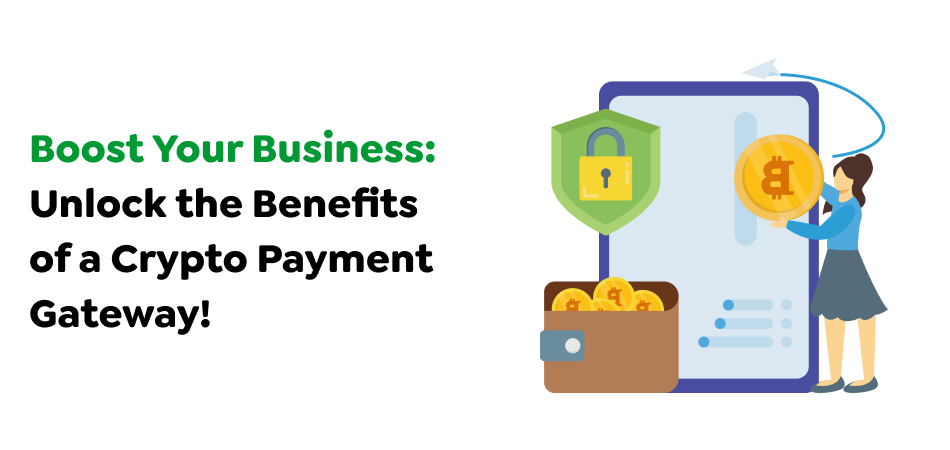
The development of a cryptocurrency payment gateway has numerous advantages for firms. Below are the top reasons to build a cryptocurrency-based payment gateway
1. Global Reach And Borderless Transactions
Crypto payments have the capacity to allow worldwide transactions while avoiding the drawbacks of conventional banks. The cryptocurrency network is decentralized, allowing companies to accept cash payments from their customers all over the world without having to worry about changing fees and exchange rates.
2. Faster Transaction Settlements
Traditional banking transactions could be delayed for a few days before being settled. However, payments made through cryptocurrency are processed significantly faster. They allow for fast and instant settlements, which reduces the length of time businesses have to wait to get their money. This convenience is particularly advantageous in industries that require quick cash flow, where access to money is crucial.
3. Enhanced Security And Fraud Prevention
The technology that underlies cryptocurrency is based on blockchain and provides robust security functions to guard against fraud and unauthorized transactions. Transactions through a crypto payment gateway are secured and kept in a publicly accessible ledger. They are nearly impossible to modify or reverse without being detected.
4. Lower Transaction Costs
Traditional financial institutions and processors typically charge high fees for international transactions and currency conversions. In contrast, cryptocurrency payment processors generally have lower transaction fees since they don’t require intermediaries. This is useful for firms that deal with a large volume of trans-border transactions.
5. Access To Growing Market
The use of cryptocurrency has been increasing as more businesses and consumers realize their worth. By offering payment in cryptocurrency, firms can benefit from the market’s growing demand and attract technologically adept people who prefer digital currency. This strategy meets current needs and helps businesses prepare for future growth as cryptocurrency usage has become increasingly commonplace.
6. Anonymity And Privacy
Many consumers are becoming worried about their privacy while making online purchases. Additionally, cryptocurrencies provide a degree of protection that traditional payments do not. With the integration of a cryptocurrency payment system, businesses can direct their attention to those who are concerned about privacy and expand the number of customers they serve.
Also Read : How to Develop an App Like Shein: Understanding Costs and Features
Cost To Build a Crypto Payment Gateway Like BitPay
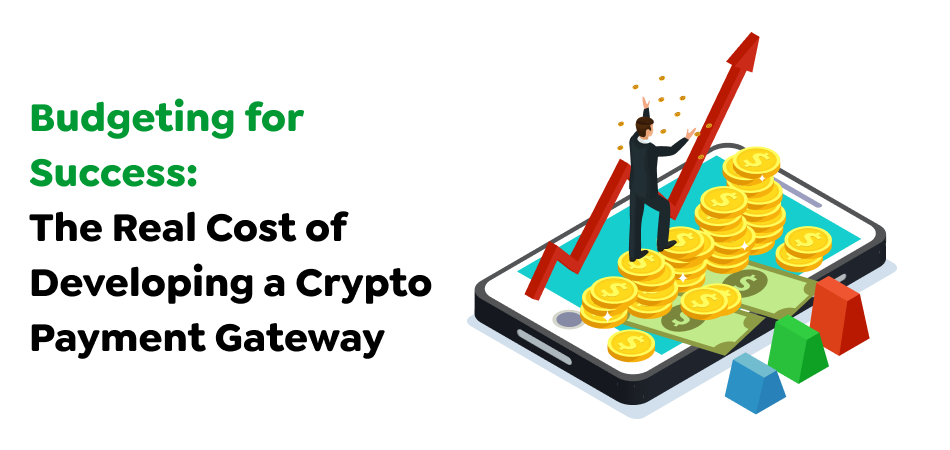
The number of platforms offering cryptocurrency-based payment solutions is restricted. BitPay is the leading payment service in the crypto-based marketplace. As a result, the growing small-scale trade and enterprise sectors are investing rapidly in developing crypto payment gateways such as BitPay to secure transactions. When discussing development, companies often wrestle with the problem of what it will cost to build apps like BitPay.
The cost to develop apps like BitPay can greatly differ according to the type of payment gateway you want to create. The crypto payment gateway with essential functions costs approximately $15,000-$25,000. To build an advanced crypto payment system with sophisticated and advanced functions, investing anywhere from $35,000 to $55,000 is necessary. Beyond that, it is essential to remember that the price of crypto payments gateway development could depend on many variables, like complexity, features, costs, team members’ salaries, etc.
Investing in a more user-friendly interface based on the most recent security standards and the top cryptocurrency is essential. Continuous maintenance and upgrades could make your crypto payment processor more costly.
Also Read : Unlocking Success: How to Develop a Tax Preparation App Like TurboTax
Factors Affecting The BitPay Like App Development Cost
Making a crypto payment gateway, such as BitPay, is a complex mix of elements that affect the overall costs of the development. Knowing these essential factors is vital for any business contemplating a business project. Below are the elements that have a significant impact on the cost associated with developing apps like BitPay:
1. Platform Complexity
The platform’s complexity level and the range of functions required to bring your idea into reality are among the main aspects influencing the development cost of an app based on BitPay. Developing apps like BitPay is a complex process that includes real-time transaction and update processing.
Complex features add more complexity to app design processes and require equal time, resources, and skilled personalization expertise for optimal development. More features require significant investments in app development.
2. Location Of Developers
The geographic location of teams working on development directly affects crypto gateway development costs. The hourly rate for app development companies varies across a wider area by the topographic area. For example, a Blockchain development firm located in North America will substantially charge more than those situated in Asian or African regions.
3. UI/UX design
Crypto payment gateway success can be attributed to its simple integration, attractive design, mobile responsiveness, and features affecting user engagement and development costs. Therefore, developing cryptocurrency gateways depends on their UI/UX design and layout complexity.
4. Payment Processor Interaction
The ease of integration with the various types of cryptocurrency enables seamless interplay with diversification of payment methods. API interactions, as well as transaction effects, significantly impact the development of transaction complexity and the costs associated with them.
5. Security Level
Strict security measures are necessary to establish trust in a cryptocurrency market. The use of encryption methods, multi-faceted authentication, and compliance with regulations have the potential to determine the costs of developing payment gateways.
6. Legal And Compliance Cost
The development of a cryptocurrency payment system needs compliance with legal appliance standards such as anti-money laundering (AML) and know-your-customer (KYC). This ensures the continuous efforts of mobile app development company in Canada that adhere to industry rules, which ensures seamless transactions. This evolves into the known costs of crypto payments via Web3 that allow for development.
7. App testing And Quality Assurance
We know that crypto-currency doors generally have rigorous safety and security requirements. Therefore, the incorporation of strong application tests and tools can be crucial to guarantee the security of data, quality assurance, and reliability of web-based cryptocurrency payment services. These efforts can contribute towards the development cost; however, they’re not part of the equation as a secure and stable platform.
8. Maintenance And Updates
Maintenance continues to evolve and includes bugs, security updates, and the introduction of new features. It plays a vital function in ensuring smooth operation and protocols suitable for cryptocurrency payment gateways. The inability to maintain the system is a major factor contributing to the total crypto payment costs for development.
Also Read : How to Develop an App Like Doximity: A Comprehensive Guide
Cost Breakdown Of Crypto Payment Gateway Development
The expenses of building apps like BitPay can be divided into different areas of focus:
1. Development
The initial setup and the ongoing enhancement of the system. To build a crypto-based payment gateway from scratch, you can expect a cost of around $200,000 to $500,000 plus for the initial development. This covers designing and developing the core wallet, transaction/settlement engine, admin UI, merchant integration and APIs, security protocols, etc.
Maintaining and developing the site on an ongoing basis could cost between $5,000 and $15,000 monthly. The cost includes adding new features, including support for new currencies, enhancing the APIs, scaling infrastructure and security audits, bug fixes, etc.
2. Infrastructure
A cryptocurrency payment gateway requires solid infrastructure that can handle high volume transactions, high redundancy, and low latency, for instance. It includes load balancers, server databases, monitoring, caching logs, and monitoring.
Based on the transaction amount and redundancy requirements, estimate infrastructure costs to be in the region of $500-$2,000 per month. Using geo-distributed infrastructure to ensure redundancy and low latency will increase the cost.
3. Operations
It covers daily operations such as server administration, security monitoring, and customer service, as well as handling settlements, integrations, and so on. Operating costs vary between $2,000 and $10,000 each month for a smaller group consisting of support reps, engineers, and compliance officers.
4. Marketing
Marketing is necessary to promote the gateway and attract merchants and users. This includes digital ads and content production, partnerships, affiliate and partner programs, and so on. Marketing budgets are often more than $10,000 per month.
Also Read : Transforming Healthcare: How to Build an App Like GoodRx
Must-Have Features Of Crypto Payment Gateway Like BitPay
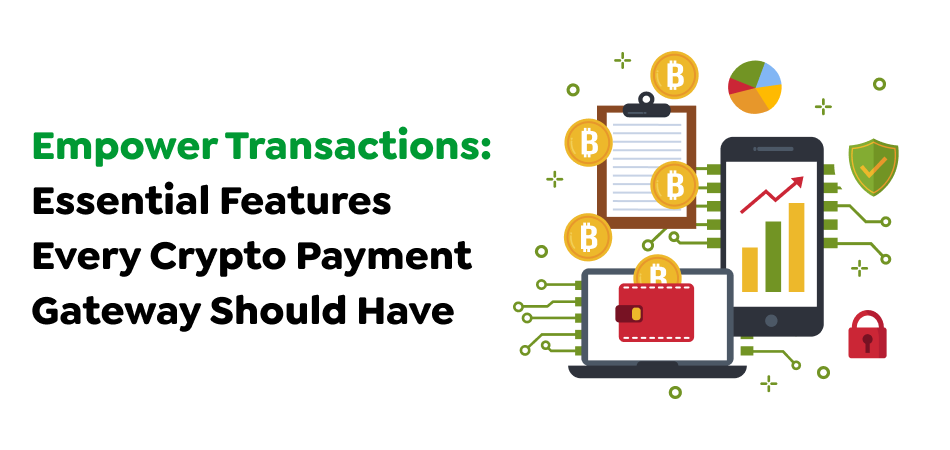
The features bring life to a crypto payment platform, creating a profitable app. Therefore, companies must consider the key features when building apps like BitPay. If you’re wondering what options are best for your crypto payment system, we’ve compiled an extensive list of features below. Simply refer to these features to help your application stand above the rest.
1. Multi-Cryptocurrency Support
It’s one of the main characteristics of the BitPay platform. It allows users to cross over several cryptocurrencies and offers range of flexibility and achievability for various user preferences. This increases the utility of payment gateways and appeals to a broader audience interested in multiple digital currencies.
2. Secured Wireless Wallet Interactions
Security is the main component of the app’s features, and it depends on storing and managing cryptocurrency without trepidation. This function is crucial in securing users against digital disputes and granting access to sophisticated encryption methods and secure storage models.
3. Conversion To The Fiat Currency
The benefits of converting crypto payments to Fiat currencies provide businesses with the flexibility they require. They can accumulate those that differ from the official currency, allowing for a more efficient integration of cryptocurrency payments into a financial department.
4. Real-Time Transaction Allotment
Real-time monitoring allows both merchants and users to monitor transactions rapidly. Transparency increases trustworthiness by allowing users to keep updated on the progress of their transactions and providing quick resolutions to any problems that might be encountered.
5. API Intervention
API Integration allows businesses to integrate their crypto doors with other platforms, like eCommerce sites. This function streamlines the integration process for businesses by incorporating processes for business, improving accessibility of the payment gateways.
6. User Authentication And Security
Incorporating the security features of highly secure measures such as two-factor authentication, KYC updates, and data encryption. It makes payments more secure against unauthorized access and protects customers’ accounts from cybercrime.
7. Dashboard
An extensive dashboard is created to serve as the primary platform for all customers, providing an overview of account activation, transaction status, and trustworthy details. Convenient data centralization, focused on users’ needs, transaction logs, search preferences, and categorizations, increases visibility and control for the user over the other financial sectors.
8. Merchant Tools
Merchant tools provide businesses with the infrastructure needed to handle transactions effectively. This includes features to track transaction sales, study payment data, customize payment options, and help merchants optimize their payment processes.
9. Ticket Generation
Tickets generated efficiently allow customers to get help and report problems quickly. Friendly interfaces for creating tickets and tracking their status can improve customer satisfaction and build confidence in the service environment.
Also Read : How Much Will It Cost to Create an AI-Based Shopping App Like Target?
Process To Develop Crypto Payment Gateway Like BitPay
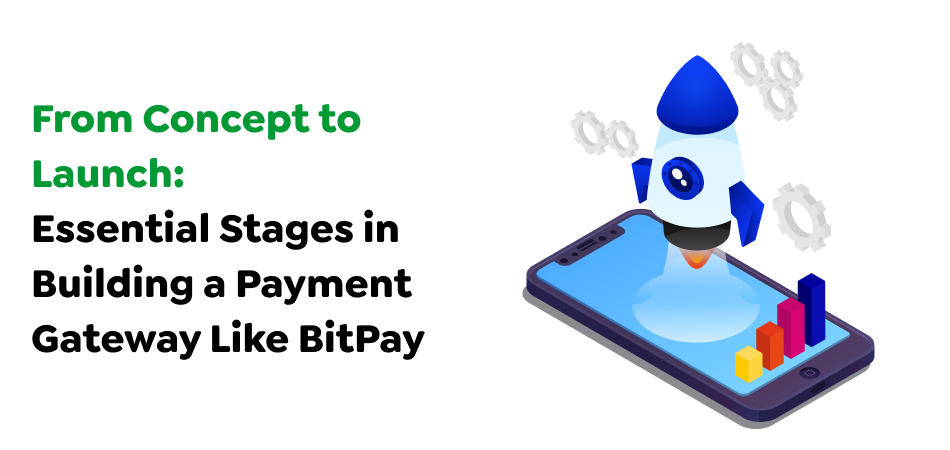
If you’re planning to build apps like BitPay, be aware of its procedures in full detail to aid in the smooth running of your project. Therefore, whether you’re creating a brand new app, consider labeling it as a crypto payment service and exploring alternative options. Learn the entire procedure that provides valuable information to your needs.
1. Planning And Research
It’s essential to conduct thorough planning and analysis while building apps like BitPay. The crypto payment gateway development firm will conduct an exhaustive study and dive into issues like knowing your audience’s needs, keeping up-to-date with developments in the marketplace, and understanding the market demand for crypto-based payment options. Additionally, they see the potential of your payment processor in terms of transaction costs, supported cryptocurrency, geographical range, and much more.
2. Blockchain Technology Selection
Selecting the right Blockchain technology to develop payment gateways is essential to guarantee its achievement. Choose a technology that will be able to align with the requirements of your business as well as support your desired currencies, requirements for scalability, and many other requirements.
You can choose the best option from Bitcoin, Ethereum, and many other platforms that have powerful technology for smart contracts. Be sure that the technology you choose is extremely scalable, safe, and well-established.
3. Security Infrastructure
Security must be considered while creating a crypto payment gateway to guarantee the security of transactions involving sensitive information. Adopting the latest security methods is essential to increasing the security of your crypto payment gateways.
The top security options include encryption, two-factor authentication, and more. Creating a security system that aligns with the most current industry rules and standards is essential.
4. API Integration
Application programming interfaces (APIs) are essential and allow cryptocurrency payment gateways to easily communicate with other platforms. This means you can build powerful APIs that enable secure and smooth transactions.
They must support various features, like checking the status of transaction payments, payment initiation, process orders, and much more. The payment gateway is more adaptable because it integrates with popular payment and exchange services.
5. User Interface Design And Merchant Onboarding
There is a need to realize that user interfaces significantly impact any payment processor’s performance. Create an interface for users that allows merchants and customers to access the payment gateway easily while providing an efficient user experience. Adhere to the principle of responsive design. Be certain that the payment processor provides an easy onboarding process to facilitate rapid implementation.
6. Testing, Launch, And Maintenance
Before releasing your payment gateway for use, it is imperative that you conduct thorough testing to identify any possible vulnerabilities or flaws in its design and function. Once the tests have been successfully conducted, your payment system can be officially launched with smaller numbers of users to begin collecting feedback before formally unveiling it. Regular maintenance checks should also be undertaken to protect it against security risks.
Also Read : How Much Does It Cost to Develop an App in 2025? A Comprehensive Guide
Challenges Of Building a Crypto Payment Gateway Like BitPay
Developing a cryptocurrency payment gateway is accompanied by a different set of issues not encountered by conventional payment gateways. These are the most critical issues that you should be aware of
1. Integration With Legacy Systems
Most existing payment platforms and accounting software were specifically designed to work with fiat currencies. Implementing the acceptance and processing of cryptocurrency transactions may require the creation of customized modules and a lot of research and development. It isn’t as easy to connect PayPal and Stripe. When making crypto payments work well with backends incompatible with older systems, prepare yourself for issues.
2. Volatility Of Crypto Currencies
The biggest issue is the volatility of cryptocurrencies such as Bitcoin or Ethereum. They are subject to frequent fluctuations in their prices, meaning that the value of transactions could change swiftly. That makes setting the prices and managing settlements complex. Options like converting crypto into fast fiat can reduce certain risks. However, volatility is a constant problem.
3. Unclear Regulations
The legal landscape surrounding cryptocurrencies is constantly developing. There is a lack of clarity or conflicting rules on taxation, accounting treatments, compliance, and licensing to provide crypto-related financial services across various jurisdictions.
The uncertainty creates a risk for businesses to run cryptocurrency payment services since the lawful requirements may change. It’s essential to provide advanced legal and compliance assistance for dealing with payments made via cryptocurrency.
Also Read : Unlock the Future of Finance: How to Develop a Neobanking App Like SoFi
Future Of Crypto Payment Gateway Development
The future of crypto-based payments gateway development looks more positive, as it will revolutionize payments made by financial institutions. As the technology matures, blockchain technology and cryptocurrency payment gateways are expected to increase speeds, security, and access. Using Decentralized Finance (DeFi), users can move transactions without intermediaries.
The integration of payment gateways with smart contracts and stablecoins tends to boost stability and reduce concerns about volatility. Collaboration between blockchain companies and financial institutions could lead to massive cryptocurrency payment gateway use. Blockchain technology is set to alter the manner in which transactions occur.
Conclusion
Creating apps like BitPay could be an enormous task, but it can also be profitable, as it allows innovative payment options for your customers or business. Although the initial development and infrastructure costs may appear expensive, in the long run, the systems could provide substantial savings on processing fees when compared with traditional payment gateways.
The adoption of cryptocurrency continues to expand, being able to accept cryptocurrency transactions will be an essential competitive benefit. While Bitcoin and Ethereum have the majority of market share, the cryptocurrency market is always evolving. The development of a flexible gateway structure can allow the addition of the latest coins and blockchain-related protocols in the future.
When you carefully plan the capabilities, technologies, and implementation to be successful, you will unlock the potential of this new payment option. When you decide to create your payment gateway and establish yourself to profit from this expanding possibility, it’s a bright future for customers and businesses looking for quicker processing times, better security, and more crypto-based payments available. Techugo, an app development company, can help you turn your vision into reality.
Get in touch with us today to learn more about how we can assist you in developing your own crypto payment gateway!
Get In touch
We are excited to here from you and let’s start something special Together. Call Us for any inquiry.
Write us
sales@techugo.caJust a call away
About you




